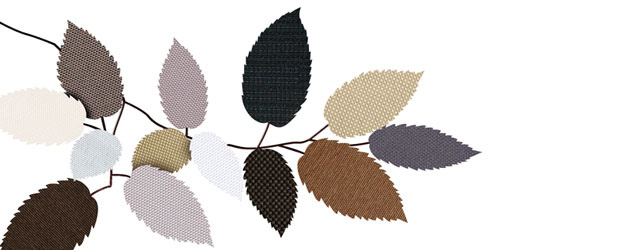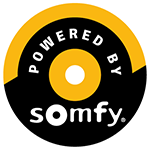
The way we see it, there are three key ways Vertilux as a company can reduce our impact on the environment:
The first is by making better blinds. A quality blind can manage heat and light coming into a building, therefore reducing reliance on heating and air-conditioning, reducing electricity consumption and minimizing greenhouse emissions. So, the more effective the blinds we make, the better the impact of our product. Innovative products such as our Fully Enclosed Kassett System blocks 100% of ambient light and heat. Other systems can be timed so that blinds open and close as the sun moves across the sky, maximizing efficiency.
The second is by making blinds from better materials. To this end, our Greenvision® fabrics are PVC-free, low-VOC, ecospecifier assessed and can also assist in the achievement of points as set by the Green Building Council of Australia.
The third is how we make our blinds. Every process in our factory is governed by our Waste Not Want Not factory principles, which keep material use and garbage creation to a minimum.
Our environmental impact – including waste, water and energy usage – has been independently assessed. We have a Sustainability Policy here for everyone to read. Our suppliers are assessed based on our Sustainable Procurement Policy and chosen accordingly. But that’s not all.
Our Sustainability Action Plan ensures that doing better by the environment is embedded in our business and that all our environmental initiatives are questioned, assessed, extended and improved year on year.
WASTE NOT WANT NOT – OUR BETTER WAY OF BUILDING BLINDS
 Our factory is managed by our Waste Not Want Not principles. In practice this means many initiatives, all designed to reduce material, energy and water inputs and waste outputs. For example:
Our factory is managed by our Waste Not Want Not principles. In practice this means many initiatives, all designed to reduce material, energy and water inputs and waste outputs. For example:
Metal rods are a key component in Vertilux roller blinds. By ordering these in lengths and custom cutting to size, offcuts are kept to a minimum. What does go to waste is recycled.
Materials are a key component in all our blinds. They are delivered on cardboard tubes, much like aluminium foil or glad wrap, only considerably larger. Rather than dispose of these cardboard tubes, we use them to package and despatch completed blinds. They make strong packaging, which reduces damage to blinds in delivery. Reusing materials in this way also reduces waste. We also offer a pickup and reuse or recycle service on these tubes for our larger orders of blinds.
Our factory itself is heated by gas powered hot water running in tubes through the floor, removing the need for energy hungry central heating systems. The same water is then circulated for use in kitchen areas. Our manufacturing process is water-free.
We recycle all paper, metal offcuts, printer cartridges and packaging received from suppliers across our operation. We use recycled paper in our printed order forms and marketing material wherever possible.
Through these and other initiatives, we have been able to reduce waste from four to one dumpsters a month. Water and energy usage have also been lowered significantly.
GLOBAL GREENTAG CERTIFICATION


Our Euroscreen®, Euroscreen™ Metallised, Eurovision®, Eurovision® Metallised, Chanell™, Euroview™ and Metalo® Metallised fabrics have all been certified with a Global GreenTagCertTM Gold Streamlined* and GreenRate Level A ratings.
Global GreenTag is a recognised Green Building Council of Australia, third party certification system for products.
Level A GreenRate Certified Products achieve 100% of points under the Green Star® Sustainable Products credits in the latest:
– Design and As Built
– Interiors and
– Performance
Rating tools, as well as the Materials Calculator credits in the older Legacy rating tools.
* The Global GreenTagCertTM LCARate Program is unique nationally and internationally in providing a scientifically derived and consistent green building product rating scheme that is based around life cycle assessment (LCA) and includes appropriate assessment of health, ecological and social issues. A ‘Streamlined’ assessment means LCI data has been undertaken by Remote Audit.
Our Greenvision® fabrics are PVC-free, low in VOCs and include our popular Trevira CS fabrics. In addition many of the Vertilux Greenvision® ranges achieve excellent eco rating assessments from ecospecifier, with many of the fabrics also meeting the requirements set out by the international Oeko-Tex 100 certification.
Read more about GreenTag certified Vertilux products and about Global GreenTag at globalgreentag.com.
Two of Vertilux Polyester Ranges; Zing® Translucent and Zing® Room Darkening are Ecospecifier Verified Products. Ecospecifier Verified Products have been third party assessed as healthy products with all environmental and health claims verified as true.
Read more about Vertilux fabrics on Ecospecifier at ecospecifier.com.au.
GREEN BUILDING COUNCIL: EARNING YOUR STARS
 Vertilux is a member of the Green Building Council of Australia. The Green Building Council is responsible for the Green Star rating system, a national environmental rating system that evaluates the environmental design and construction of buildings.
Vertilux is a member of the Green Building Council of Australia. The Green Building Council is responsible for the Green Star rating system, a national environmental rating system that evaluates the environmental design and construction of buildings.
Vertilux blinds can help increase your building’s Green Star rating. To find out more about the Council and Green Star, visit gbca.org.au.
Greenvision® FABRIC RANGE
 Our Greenvision® fabrics are PVC-free and low in VOCs and include our popular Trevira CS fabrics. In addition to achieving the highest possible eco rating assessment from ecospecifier, Vertilux Greenvision® fabrics also meet the requirements set out by the international Oeko-Tex 100 certification. They may also assist in achieving points towards the green star ratings from the Green Building Council of Australia.
Our Greenvision® fabrics are PVC-free and low in VOCs and include our popular Trevira CS fabrics. In addition to achieving the highest possible eco rating assessment from ecospecifier, Vertilux Greenvision® fabrics also meet the requirements set out by the international Oeko-Tex 100 certification. They may also assist in achieving points towards the green star ratings from the Green Building Council of Australia.
VOCs (Volatile Organic Compounds) are emitted as gases from certain solids or liquids. These include a variety of chemicals that may have short or long term adverse health effects.
PVC, or Polyvinyl Chloride, is a material whose manufacture creates considerable dioxins – one of the deadliest man made toxins and one which is cumulative through the food chain. PVC is also neither biodegradable nor degradable, retaining its form for decades in landfill. Substances called phthalates, which may cause cancer, kidney and reproductive system damage, are added to PVC to make it flexible.
For a more detailed look at the various fabrics in our Greenvision® range please click here. Please download our Environmental Policy here.
OPTIONS™ FABRIC RANGE
![]() Vertilux have long been recognised as being the leader in PVC-free and low VOC fabrics that have met acceptance into the Vertilux Greenvision® Fabric Ranges.
Vertilux have long been recognised as being the leader in PVC-free and low VOC fabrics that have met acceptance into the Vertilux Greenvision® Fabric Ranges.
However, Vertilux also recognises that there are other well made fabrics that meet a market need, but have not ticked all the boxes required to make it into the Greenvision® Fabric Range. As a result the Options™ Fabric Range has been created. The fabrics within this range are well made, and in the most, are supplied exclusively to Vertilux.
As an example Status™ 10% + 5% meets the high standards required to be certified for Greenguard® and is Oeko-Tex Certified.
For a more detailed look at the Options™ Fabric Range please click here

